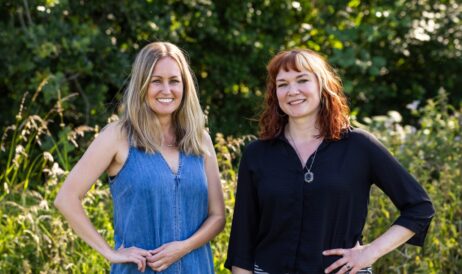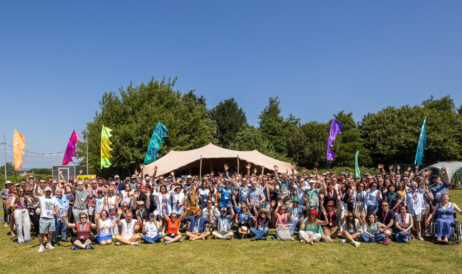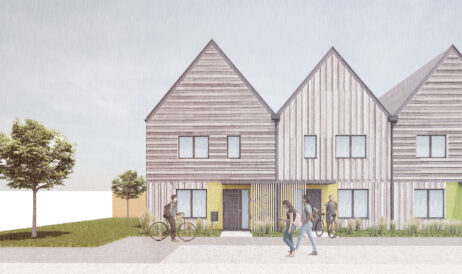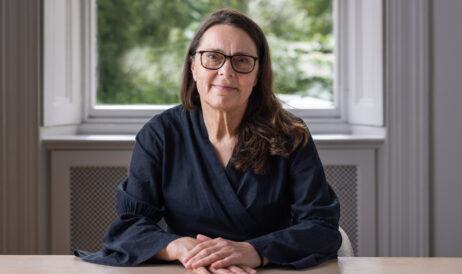Waste: “to use or expend carelessly, extravagantly, or to no purpose.”
We are so familiar with the notion of waste that it’s now an accepted by-product of our everyday lives – in shopping, in food, in construction. But there is no waste in nature. In fact, with our linear way of doing things, we might be the only species that wastes valuable resources and damages the planet at the same time.
Society needs to rethink how we buy and build stuff. As designers and consumers, we believe we can impact the future. And so, for our ninth annual #GreenWeek, we organised a brilliant selection of events to show the way to #ZeroWaste. Here are just a few of the highlights from across the practice…
Singling out single-use plastic
In Bristol we asked staff and visitors to sign the Plastic Pledge – a promise to ditch single-use plastic for the week. Natalie Fee, founder of City to Sea, gave a talk inspiring us to live a happier life with less plastic. Over in Cardiff, plastic-free alternatives to everyday essentials were explored – who knew you could make clingfilm from beeswax? Whilst our team in Plymouth started the milk bottle revolution calling for a return to traditional glass milk bottle deliveries.
https://twitter.com/Lauren_Winfield/status/1140711823299239937
Rethinking recycling
We got creative with the waste we couldn’t avoid. In Winchester we were visited by an EcoBrick ambassador who showed us how to transform non-recyclable plastics into a building material. We ran a giant origami workshop in Cardiff and turned waste paper into useful boxes and pots – no papercuts reported.
And over at Promenade House, we’re now awaiting the arrival of some new, feathered neighbours after installing DIY bird boxes made using off-cuts of unwanted timber.
Waste not, want not
It wouldn’t be Green Week without food on the agenda. In Cardiff we enjoyed a #TooGoodToWaste mezze prepared using Lidl’s damaged, but perfectly-edible, fruit and veggie boxes – washed down with ‘old fruit’ infused gin.
Smaller Footprints set up a zero waste pop-up shop in Bristol showcasing their products which are sourced to avoid conventional wasteful practice.
And Sims Hill, a pioneering social enterprise growing food for the people of Bristol, gave a talk explaining how we can break away from the wastefulness of a global food system by eating local. This inspired our Bristol BBQ with food all sourced locally, with minimum packaging and collected using sustainable transport methods.
https://twitter.com/PeteJBadger/status/1142038741869125632
One person’s junk is another’s treasure
It was a trip to Southampton Wood Recycling Project which got us inspired in Winchester. We learnt how the centre collects waste timber from various local building sites to either be recycled into Biomass fuel or up-cycled into usable timber. There are now plans to use this timber to create a new EcoBrick Building Station for the office!

Back in Bristol, Climate Change Consultant, Damien Canning, spoke to us about a circular economy in the built environment and the benefits it has over the traditional ‘make, use, dispose’ approach. Something which CollectEco backed when showcasing their work helping UK businesses to donate unwanted or surplus furniture and equipment to not-for-profit good causes.
Zero to Hero
And finally, congratulations to George Luffingham who was crowned Bath’s Zero to Hero Waste Champion. In his very humble coronation speech George reveled, ‘This is not just a personal win, but a win for the planet too.”
What’s next…
Following Green Week, we have been looking more closely at what we can do to move towards zero waste as an company. In our Bristol HQ, we’ already made lots of changes. We now collect food waste, non-recyclable crisp packets and have redesigned all of our bin stations to make recycling less complicated. Our graphics team have updated our branded stationery and now use recycled paper/card and vegetable inks. And many of our offices are collecting non-recyclable plastics to make Ecobricks.
In terms of what we design, we continue to explore how we can embody circular economy principles into our projects.







